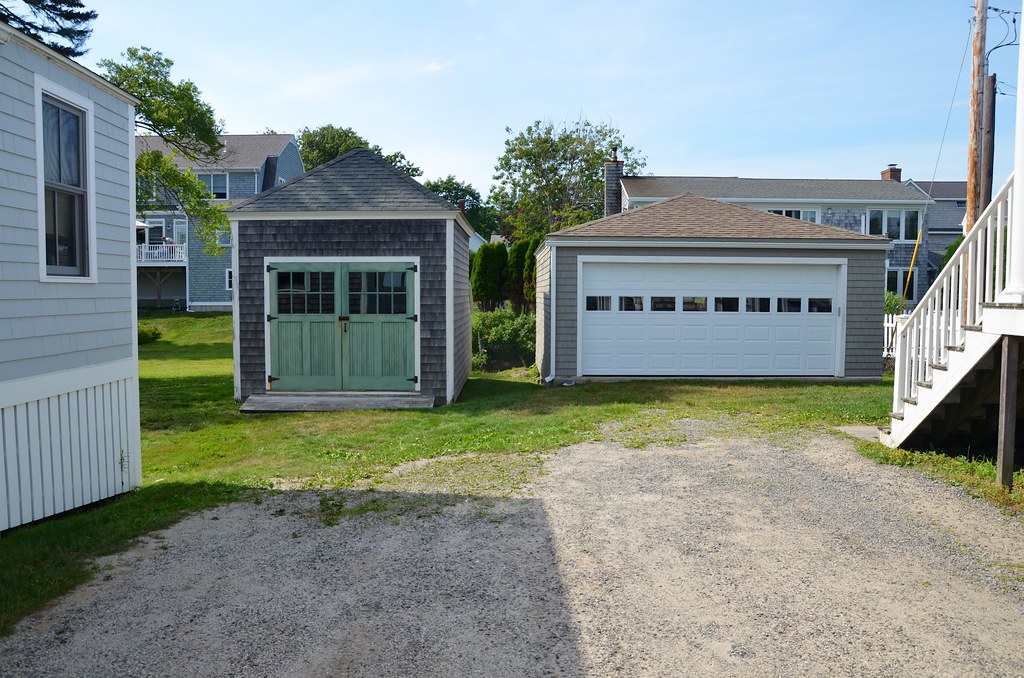
Navigating shared driveway laws in Ontario can be a daunting task. I’ve found that it’s essential to understand your rights and responsibilities when you share a driveway with neighbors. To put it simply, shared driveways are common spaces used by two or more property owners for access to their respective properties. In Ontario, these shared spaces come with specific legal regulations that all parties must abide by.
In my experience dealing with such matters, I’ve realized the importance of good communication between neighbors. It’s crucial not only for maintaining peace but also for ensuring each party understands its obligations under the law. When conflicts arise over issues like maintenance costs or usage rights, knowing the legal framework helps navigate disputes more effectively.
Understanding this complex landscape isn’t just about decoding legalese – it involves grasping how property boundaries affect your day-to-day life and respecting others’ space while asserting your own rights as well. That’s why knowing about Ontario’s shared driveway laws is fundamental if you find yourself living in close quarters with others.
Understanding Shared Driveway Laws in Ontario
Shared driveways can be a common sight, especially in urban areas of Ontario. With the increasing number of houses and limited space, it’s no surprise that many properties have shared access routes. But how does this work legally? Let’s delve into the nuances of shared driveway laws in Ontario.
The first thing to understand is the concept of easements. An easement gives someone the right to use another person’s property for a specific purpose. In our case, it allows homeowners to cross over their neighbor’s land to reach their own home.
Now let’s talk about how these rights are established:
- They may be created by an express grant or reservation
- They could arise through implication due to long-term usage
- Occasionally they’re formed by necessity when one property cannot be accessed without crossing another
Keep in mind that these rights are generally permanent and bind future owners as well.
One crucial point is knowing your obligations as a homeowner with a shared driveway; I can’t stress this enough: maintenance responsibilities need clarity! Often, each party must contribute equally towards maintenance costs unless otherwise specified in an agreement or deed.
What happens if there’s disagreement? Well then you’ll find yourself dealing with dispute resolution, which usually involves mediation or legal action depending on the severity and nature of the dispute.
So remember:
- Understand your easement rights
- Know how these were established
- Clarify maintenance responsibilities
- Be aware of potential disputes
There you have it! Navigating through shared driveway laws might seem complicated at first glance but understanding these key points will definitely make things easier down this road less traveled!
Navigating Disputes: Tips and Strategies
Disagreements over shared driveways can be a headache. But, don’t worry! I’m here to guide you through the process of resolving these disputes in Ontario.
First off, it’s essential to understand that any conflict resolution should start with communication. Talk it out with your neighbor; sometimes a simple conversation can clear up misunderstandings and pave the way for an agreement.
In case talking doesn’t solve things, documentation is your next step. Start by gathering all necessary documents related to your property such as deeds or agreements that clearly indicate driveway rights. This paper trail will help clarify who owns what.
If this fails too, mediation could be a good option:
- It’s cost-effective
- More informal than court proceedings
- Can result in win-win solutions
Mediation involves a neutral third party who helps both sides come to an agreement. The mediator does not make decisions but facilitates discussions and suggests possible resolutions.
Sometimes though, legal action may be inevitable if other avenues have been exhausted or if there’s blatant disregard for laws and regulations pertaining shared driveways in Ontario.
Remember always keep records of all interactions related to the dispute – from emails exchanged with your neighbor about the issue, notes from meetings held (including dates), photographs showing current use of driveway etc., just in case you need evidence later on.
To navigate these tricky waters successfully remember:
- Keep communication lines open
- Gather relevant documents
- Consider mediation before resorting to litigation
- Document everything
Dealing with conflicts over shared driveways isn’t easy but being prepared can make things smoother down the line!
And hey! Don’t forget consulting a lawyer experienced in property law might also provide valuable insights tailored specifically for your situation – especially when things get tough!
Troy Channer is a seasoned professional with over a decade of experience in the construction industry, specializing in residential projects and road infrastructure networks. His expertise spans a broad range of skills, including proficiency in Microsoft Excel, Word, and PowerPoint, which he adeptly uses to streamline operations and enhance productivity.
Troy’s commitment to excellent customer service is a cornerstone of his professional philosophy, always prioritizing client satisfaction and fostering strong relationships. His leadership skills are well-recognized, and he has a proven track record of managing teams to deliver high-quality results.
In addition to his construction experience, Troy is also the proud owner of a successful landscape company based in Oakville. This venture allows him to apply his extensive knowledge of civil engineering and project management to create beautiful and sustainable outdoor spaces for his clients.
Troy holds an Advanced Diploma in Civil Engineering Technology from Humber College, further solidifying his credentials as a highly skilled operations professional in the industry. His combined experience and education make him a versatile professional capable of tackling a wide range of projects.








